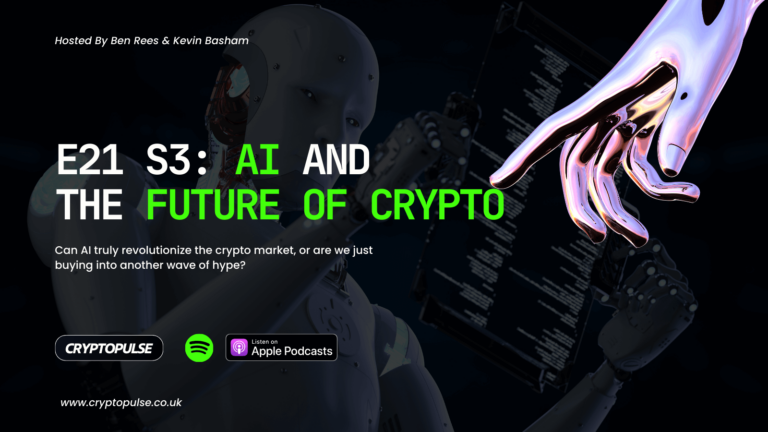Should I buy Bitcoin?
In this Episode of Cryptopulse we discuss the age-old question, pondered by investors and crypto enthusiasts alike: Should I buy bitcoin?
You will learn about:
- Why “Should I buy Bitcoin?” might be the WRONG question to ask.
- If Bitcoin represents the right choice for you.
- Alternatives to investing in Bitcoin (listen to our Altcoin episode here).
- Our take on sensible but highly profitable investing & how to scale up your knowledge base.
- P.S. We also made a hilarious mistake, but we left this in as we’re quite happy to laugh at ourselves!
Bonus: We debunked 10 of the biggest myths around Bitcoin, read them all here.
Ways to connect with Cryptopulse
- Cryptopulse Facebook
- Contact us directly via hello@cryptopulse.co.uk
- Join our VIP group
- Join our TELEGRAM group
- Follow us on Twitter
- Follow Kevin on Twitter
- Follow Ben on Twitter
Cryptopulse Highlights
Listen to our EPIC interview with the UK’s #1 Crypto Expert, Phillip Nunn.
New to Cryptopulse and want to go back to the start?
Subscribe or listen elsewhere
We are active in these places:
- Twitter: @crypto_pulse // @KevinBasham // @BenAtFamous
- Facebook: VIP Community // Facebook Page
- LinkedIn: Kevin Basham // Ben Rees // Cryptopulse
- Instagram: Crypto_pulse // Kevin // Ben
- Email: hello@cryptopulse.co.uk
- Telegram: Cryptopulse
DONATE CRYPTO TO THE SHOW:
If you’ve enjoyed the show then we really appreciate donations. This helps us keep the electricity running, food in our bellies and goes some way to covering our production, marketing & running costs.
Litecoin (LTC) LWQGzvMuNLaDiF5yjjPhFbo6bPTmeE65vn
Ethereum (ETH) 0x54d53c11f43e12e289ed69845ef1fd017bd4c488
Bitcoin (BTC) 1Ju1HRQHFkQQhYrT52WbBMX2BwwLK1F1cf
🌟ERC20 token address 0x4AEf8229Cf18e882dD4b78B6Bc8f68634FACf3De for airdrops
Cryptopulse Disclaimer:
Information provided by Cryptopulse via this group, website, social media channels and any other medium DOES NOT constitute financial advice, investment recommendations OR any other type of advice whatsoever.
The Cryptopulse team are not professional financial advisors. Trading and purchasing cryptocurrencies do carry risks and anybody wishing to partake in such activities should seek professional advice.
We don’t like the law stuff, we like the crypto stuff!



